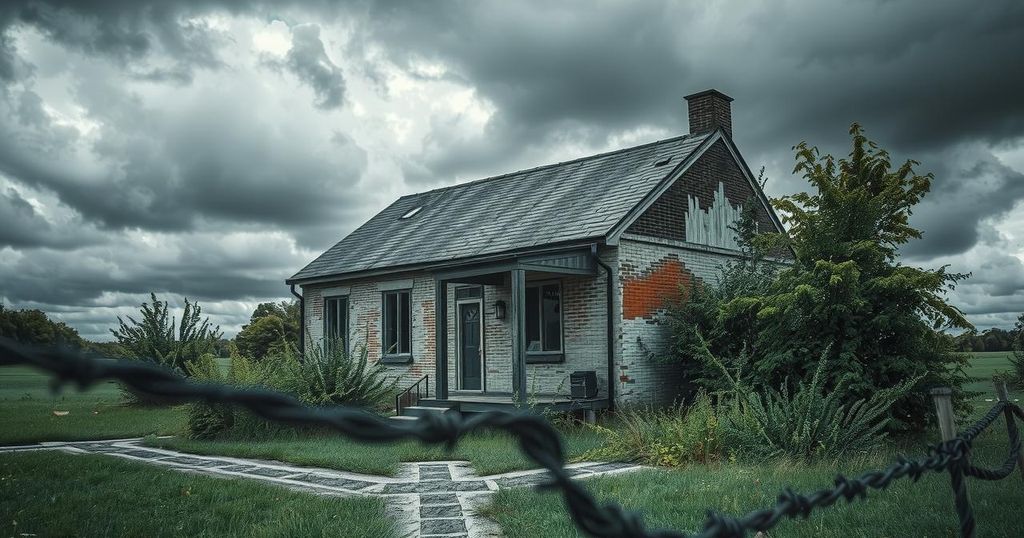Cameroon has faced a devastating civil war since 2017, which has weaponized education and disrupted the learning of over 700,000 students. Both the government and separatist forces share responsibility for this crisis, with violence leading to the disintegration of educational systems. Urgent measures are needed to protect schools and support affected students, while the global community must recognize this situation as a humanitarian crisis.
Since 2017, Cameroon has been embroiled in a severe civil conflict, resulting in the dire weaponization of education. This violence has claimed thousands of lives and severely impacted countless students, stripping them of their right to education. The ongoing struggle serves as a reminder that the use of education as a weapon only leads to collective suffering, with neither side demonstrating true victory.
The anglophone crisis ignited in October 2016 when lawyers protested the appointment of francophone magistrates to English-speaking regions, arguing that their unfamiliarity with English and Common Law undermined justice. This protest spread as teachers joined, voicing concerns over French-speaking educators assigned to these regions, lacking proficiency in English and its educational system. Instead of addressing these grievances, the government responded with violence against protesters.
As tensions escalated, many English-speakers, including university students, added their voices to the call for justice and equality. In retaliation, separatist movements emerged, seeking independence for the proposed state of Ambazonia. The International Crisis Group reported significant violence in response to these movements, further exacerbating the educational crisis in the country.
The United Nations reported over 700,000 students have faced educational disruptions due to this turmoil, effectively halting their dreams. Both the government and separatist forces share accountability for this crisis; the separatists have enforced school boycotts and attacked educational institutions, while government forces fail to protect schools, leaving children in a climate of instability.
In the Northwest and Southwest regions, children face untenable choices: attending school invites threats from separatist groups, while staying home foresees limited futures. A study indicated that only ten percent of schools were operational during the 2018/2019 academic year. Many teachers have left due to violence, stranding students without necessary education amidst poverty and malnutrition.
The human toll of the conflict is profound. I am no stranger to this devastation; I lost my father to this senseless war. An advocate for education, I established the Jumbam Family Foundation to aid students affected by the crisis. Our scholarship program encourages youth to return to school, but we have relocated students for their safety and the emotional burden of displacement remains significant.
The government and separatist groups must realize that leveraging education as a war tactic is a detrimental approach that threatens their objectives. Justice cannot prevail at the expense of future generations. Consequently, it is imperative to implement practical measures:
1. Designate schools as peaceful zones, monitored by neutral international bodies.
2. Invest in the repair and security of damaged educational infrastructures.
3. Recruit and retrain qualified teachers with appropriate compensation and safety provided.
4. Offer trauma-informed support to affected students and educators.
The global community must acknowledge the educational crisis in Cameroon as a humanitarian issue. International entities such as the African Union, United Nations, and regional allies should enhance their engagement and support. Simultaneously, grassroots organizations should be empowered to expand their educational efforts in impacted regions.
Ultimately, the repercussions of this war will not solely be measured in lives lost but in thwarted aspirations. It is essential to protect the futures of the younger generation from the ravages of political discord. Education should never be sacrificed in conflict, for all individuals endure the fallout when education is compromised.
This article underscores the devastating impact of the Cameroonian civil war on education, emphasizing the urgent need for conflict resolution and protection of students’ rights. Both governmental and separatist forces must cease using education as a weapon, recognizing the detrimental effects on future generations. Concrete steps are required to restore educational integrity, facilitated by international support and local grassroots efforts.
Original Source: allafrica.com




